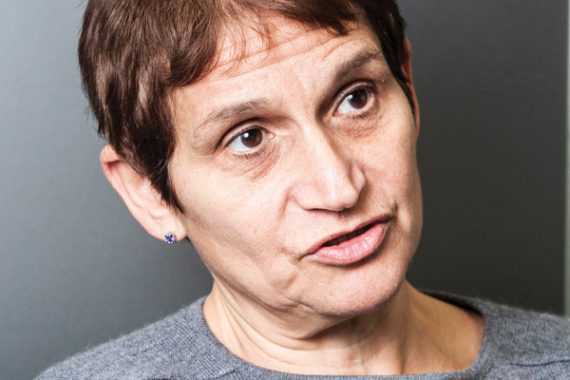Exclusive Professor Clare Gerada has written directly to the CQC’s primary care inspector to request that it does not reinstate GP inspections as planned this autumn, but instead defer inspections for at least another 12 months.
Professor Gerada, who is the medical director for the state-funded GP mental health programme NHS Practitioner Health, warned the alternative could lead to widespread burnout and early retirement among GPs.
The former RCGP chair urged the CQC to allow GPs healing time following the pandemic, including time to mourn lost colleagues and relatives.
Writing for Pulse today, former deputy BMA chair Dr Kailash Chand has backed the professor’s calls – going even further by asking for a two-year inspection hiatus.
Their words in full
Professor Clare Gerada’s letter to the CQC on restarting GP inspections
Dr Kailash Chand: ‘The CQC must listen to our concerns about restarting GP inspections’
Their pleas come after the CQC announced plans earlier this week to restart routine inspections of lower-risk GP practices from this autumn, with inspections for higher-risk practices being scheduled for this summer.
It also comes as the BMA and RCGP have both urged the CQC to overhaul the process of GP practice inspection rather than restart it during the pandemic.
In her letter, sent today, Professor Gerada urged CQC chief inspector for primary care Dr Rosie Benneyworth ‘for the sake of the mental health of the GP workforce’ to reconsider the decision to restart inspections ‘and to delay by at least 12 more months’.
Professor Gerada – who herself overcame coronavirus early on – said this comes as GP mental health was already ‘very poor’ even before the pandemic
She said: ‘Going into the pandemic GPs were exhausted, burnt out, demoralised and depressed. The impact of Covid will only exacerbate these problems as is already evident by referrals to our service.’
Professor Gerada argued that the CQC’s decision to restart inspections comes as ‘we are at the beginning of the first recovery phase’ from Covid-19 and as the whole NHS is ‘faced with re-prioritising and rescheduling work and practices are now having to adjust to working in new ways’.
‘As you can appreciate this is very challenging and even now systems are not fully embedded and to inspect now seems unreasonable,’ she said.
She also pointed out that practices will be dealing with ‘an enormous unmet need’, with a diminished workforce, which will be ‘compounded by a backlog of reports, referrals, and work, suspended due to the pandemic’, while ‘preparing for an inevitable second spike’.
‘[P]utting GPs through the additional pressures of having to prepare for an inspection might tip some of them over the edge of despair, leading to resignations and early retirement as well as a surge in mental illness amongst them’, while also distracting from ‘the task in hand’ of ‘patient care and returning services to some sort of normality’, the letter said.
Professor Gerada concluded: ‘GPs and their teams now need to re-group, to mourn the loss of friends, family and colleagues and to have a period of reflection to help them digest what they have been through and in so doing be in a position to support their staff and patients.
‘They do not need the added work, distraction and psychological burden of preparing for an inspection, no matter how limited.’
Meanwhile, writing for Pulse, Dr Chand said: ‘In this global crisis, general practice is busier than ever, and sitting on the timebomb of an avalanche of non-Covid diseases that will be hitting in the not-so distant future. Announcing of reintroduction of dysfunctional bureaucracy in general practice is another ill-thought continuation of shambolic management during the pandemic.’
He added: ‘I would urge NHS England to seriously consider the request from the BMA and Professor Clare Gerada’s letter to the chief inspector of the CQC, and abandon the idea for CQC inspections for at least two years.’
The CQC paused routine inspections in March, despite initially planning to carry on inspections despite the Covid-19 emergency.
It has since been focusing on remote monitoring of risk; and the new emergency support framework, under which it has engaged with GP practices on the phone to sound them out on issues they may need support with during the pandemic.
Pulse July survey
Take our July 2025 survey to potentially win £1.000 worth of tokens












